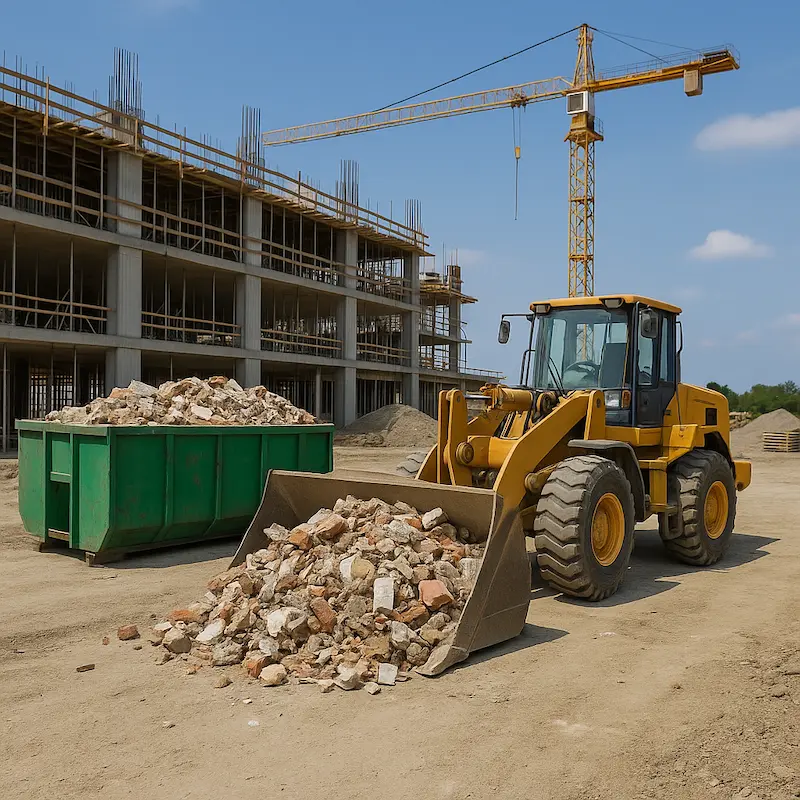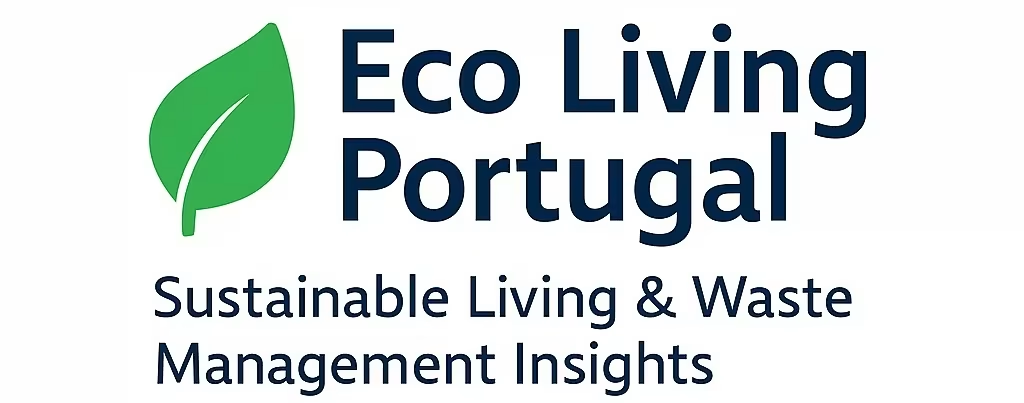This article is part of our Global Sustainability Case Studies series, which highlights how different regions manage construction waste, recycling systems, and large-scale cleanup practices in the building industry.
How Waste Management Affects Construction Workflow
Introduction – Why Waste Management Matters in Construction
When you think of a construction site, you probably picture busy workers, heavy machinery, and stacks of building materials. But there’s something else that plays a silent role in how smooth a project runs—waste management. Whether it’s leftover concrete, broken tiles, or packaging materials, managing waste directly affects productivity, safety, and profitability. In construction, good waste management isn’t just about being tidy; it’s about keeping the workflow efficient and the project on track.
Understanding Construction Waste Management
What Is Construction Waste?
Construction waste includes any unwanted materials generated during building, renovation, or demolition activities. These materials can range from bricks and wood to metals, insulation, and even hazardous items like asbestos.
The Common Types of Construction Waste
Waste in construction typically falls into categories such as concrete debris, metals, plastics, glass, soil, and packaging materials. Knowing what you’re dealing with helps in planning the right disposal and recycling strategy.
Recyclable vs Non-Recyclable Waste
Recyclable waste like metals, glass, and concrete can be repurposed, reducing both environmental harm and disposal costs. Non-recyclable waste, on the other hand, must be handled carefully to avoid contamination and fines.
The Role of Waste Management in Construction Projects

Maintaining Site Efficiency
Efficient waste management keeps the site clear and organized, allowing workers to move freely and complete tasks without obstruction. When waste piles up, it slows down progress and creates confusion.
Reducing Downtime and Delays
A cluttered site means workers spend extra time navigating around waste or waiting for removal services. Effective scheduling of waste collection prevents unnecessary project halts.
Cost Control and Budget Optimization
Every bit of waste represents money lost—either in wasted materials or disposal costs. Proper management helps minimize excess purchases and maximizes recycling value.
How Poor Waste Management Disrupts Workflow
Project Delays Due to Unmanaged Waste
When waste isn’t cleared on time, it can block access routes and delay critical tasks. For example, a blocked pathway might stop material delivery or equipment movement.
Safety Hazards and Worker Productivity
Scattered debris can cause accidents, slips, or even serious injuries. Unsafe conditions not only affect morale but also reduce productivity as workers slow down to avoid hazards.
Legal and Environmental Compliance Risks
Failing to dispose of waste correctly can lead to fines or even project shutdowns. Compliance with local environmental laws is essential for avoiding costly penalties.
How Effective Waste Management Improves Workflow

Better Material Handling and Organization
With a systematic waste management plan, materials are sorted and stored properly. Workers know where to find tools and dispose of waste, keeping operations smooth.
Enhanced Site Safety and Morale
Clean sites are safer sites. Workers feel more confident and motivated in an organized workspace, reducing stress and boosting performance.
Streamlined Logistics and Movement
By removing waste promptly, vehicles and equipment can move efficiently across the site, improving overall productivity.
To further understand how overall contractor workflow influences project efficiency, read our detailed guide on Contractor Workflow & Project Efficiency. This article explains how planning, coordination, and resource management work together with waste handling to improve construction outcomes.
Reduced Environmental Impact
Proper segregation and recycling ensure that less waste ends up in landfills, contributing to a greener, more sustainable construction industry.
Waste Segregation and Its Impact on Workflow
The Importance of On-Site Waste Segregation
Sorting waste right at the source makes it easier to recycle and dispose of responsibly. This simple step prevents bottlenecks later in the process.
Using Color-Coded Bins for Efficiency
Color-coded bins (e.g., green for recyclables, red for hazardous waste) reduce confusion and encourage workers to dispose correctly.
Sorting for Recycling and Disposal
Recycling reduces transportation and landfill costs while turning waste into valuable resources. For example, crushed concrete can be reused for road bases.
The Financial Impact of Waste Management on Construction Projects
Direct Cost Savings
Efficient waste handling reduces transport trips, landfill fees, and purchasing costs. In many cases, recycling can even generate additional income.
Indirect Benefits – Reputation and Sustainability Credits
Companies known for sustainable practices attract more clients and may qualify for green certifications such as LEED, improving brand reputation.
Role of Technology in Construction Waste Management
Smart Bins and Sensors
Smart bins use sensors to alert managers when they’re full, preventing overflow and optimizing collection schedules.
Construction Waste Tracking Software
Software tools can track waste generation by type, location, and quantity, helping teams analyze trends and improve future planning.
Using Data Analytics to Predict Waste Generation
Predictive analytics helps forecast which materials will produce the most waste, allowing better resource allocation and budget forecasting.
Collaboration Between Contractors and Waste Disposal Partners
Choosing the Right Waste Management Partner
Reliable waste partners ensure timely collection and disposal. Check for compliance, licensing, and sustainability credentials.
Scheduling RORO Bin Drop-Offs and Pickups
Proper scheduling avoids overflow or missed pickups. Align bin schedules with each construction phase to keep things running smoothly.
Communication Between Teams and Vendors
Clear communication between site managers and waste partners ensures no surprises. Regular check-ins help prevent bottlenecks.
Case Study – Efficient Waste Management in a Multi-Phase Project
How Planning Ahead Prevented Delays
In a large housing project, pre-scheduled bin rotations reduced downtime by 20% and improved worker movement efficiency.
Key Takeaways for Other Contractors
Planning waste management alongside construction scheduling can make the difference between chaos and control.
Sustainable Practices in Waste Management
Reuse and Recycling Initiatives
Reusing materials like wood pallets and metal scraps minimizes waste and saves money.
The Shift Toward Green Building Standards
Modern construction increasingly adopts eco-friendly waste solutions, aligning with global sustainability goals.
Practical Tips for Contractors to Improve Waste Workflow
Train Workers on Waste Segregation
Conduct training sessions to ensure workers understand the importance of proper disposal and recycling.
Plan Waste Removal in Project Scheduling
Include waste removal as part of your project’s Gantt chart or timeline for better coordination.
Regular Waste Audits
Periodic waste audits help identify inefficiencies and highlight areas for cost-saving improvements.
Conclusion – The Hidden Value of Proper Waste Management
Waste management might seem secondary to construction work, but it’s actually one of the most crucial elements for maintaining workflow efficiency. From safety to cost savings, from sustainability to smooth logistics, managing waste effectively turns potential chaos into structured productivity. Every builder who prioritizes waste management builds not only better structures—but better businesses.
FAQs
The main challenge is ensuring consistent segregation and timely removal across all phases of the project.
Efficient waste removal keeps pathways clear and workers focused, minimizing delays and idle time.
Tools like SmartWaste and WasteLogics help contractors track, analyze, and report waste metrics in real-time.
Even small projects benefit from organized waste handling—it saves costs, boosts reputation, and improves efficiency.
By reducing disposal costs, avoiding fines, and enabling material reuse, waste management enhances the bottom line.
